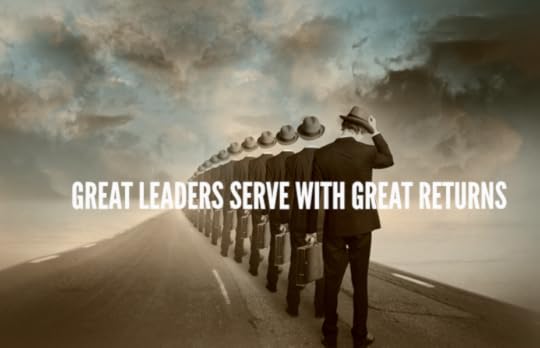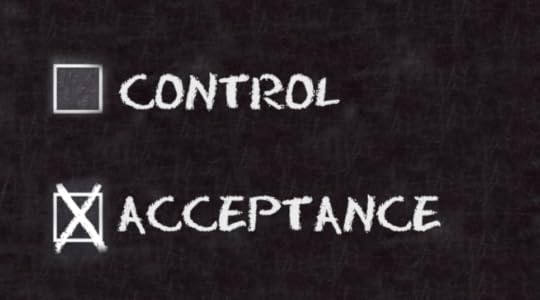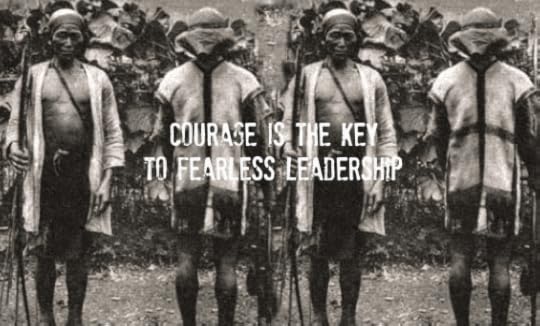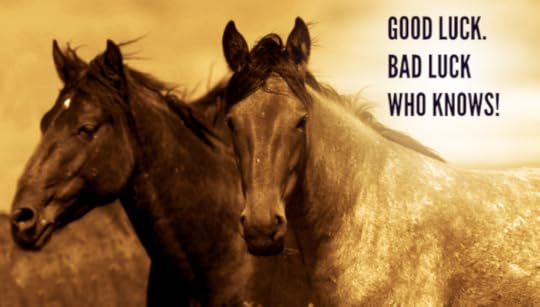Lolly Daskal's Blog, page 125
August 19, 2014
The Art Of Leadership Is Not Without Struggle
 At the age of seven, a young boy and his family were forced out of their home.
At the age of seven, a young boy and his family were forced out of their home.
The boy had to work to help support his family.
When he was nine, his mother passed away.
As a young man was keen to go to law school, but had no education.
At 22, he lost his job as a store clerk.
At 23, he ran for the state legislature and lost.
The same year, a business failure left him with a debt that took him 17 years to repay.
At 27, he had a nervous breakdown.
At 29, he lost an election to be speaker in his state legislature.
At 31, he was defeated in his attempt to become an elector.
By 35, he had been defeated twice while running for Congress.
At 39 he lost his re-election bid.
At 41, he lost his four-year-old son.
At 42, he was rejected as a prospective land officer.
At 45, he ran for the Senate and lost.
Two years later, he lost the vice presidential nomination.
At 49, he ran for Senate and lost again.
At 51, he was elected president of the United States of America.
The young boy who grew up to be president is Abraham Lincoln.
Life is a variable event for everyone and our leadership is not something we are born with, but is revealed in our everyday struggles and strain.
When is struggle is present the art of our leadership strength will be evident everywhere:
In our priorities. Leaders who know their priorities lead with what is important to them. They give their emotional intensity and continuous focus with every resource to support what they want to obtain. How you spend your time shows you what is important to you.
In our persistence. Leaders who are persistent lead with everything they have. They don’t leave any stone unturned and they don’t sit around feeling sorry for themselves but take responsibility for what they want and show determination till the very end. It is not what your life takes from you; it’s what you give to your life that counts.
In our passion. Passionate leaders apply all their efforts, all their best skills, and all their capabilities with everything they have. Goodness is good but passion is much greater.
In our patience. Patient leaders are not weak but emotionally strong. Good things may not come to those who wait, but great things come to those who have patience. Masterpieces take time. Patience is power and patience takes practice. There are many obstacles that come our way, and unless we have patience, we will react instead of responding. Patience is the attribute that helps us attain what we want and frees us from our knee-jerk reactions.
In our principles. Those who lead with principles know what is right and what is wrong. Every time we make a decision we are either moving toward our principles or away from them. Our principles are our values; they affect every direction of our life and leading.
Life has a way of throwing us into situations that test us, evaluate us, and assess us.
Leaders who do not waver in times of struggle, those are the leaders who are truly exceptional.
Lead From Within: The art of leadership is not without struggle, those that lead from a strong foundation are unshakable, they have endurance in the most grueling training that life has to offer.
Lolly Daskal is the president and founder of Lead From Within a consulting firm specializing in executive coaching and customized leadership programs Connect with Lolly Daskal
© 2014 Lolly Daskal. All rights reserved.
Additional Reading:
Leadership Is By Choice, Not Chance
Be Distinct: Find The Hero Within
Leadership: Claim Your Calling
Leadership: Challenges Can Help Us Learn And Grow
The post The Art Of Leadership Is Not Without Struggle appeared first on Lolly Daskal.
August 12, 2014
Make A Difference: Lead With A Noble Heart
Many of us lead, but not many of us lead with a noble heart.
There is a well-known anecdote related by Tom Peters about a hospital in the US that treats cancer. During a series of staff interviews, an interviewer asked the housekeeper what her job entailed.
She responded, “I help to cure cancer.” Somewhere in that hospital, a leader had connected the dots for this individual and made her feel that she was an integral part of the hospital’s mission.
Everyone wants to know that what they do matters.
Everyone craves a purpose.
Being noble in leadership is not so much about what you do but how you do it.
A leader with a noble heart can give us what we all search for—a sense of purpose, meaning, and nobility.
Here are some of the ways they do it:
A Leader with a noble heart gives us a noble sense of importance. Everyone works harder when they feel they are making a difference. Noble leadership address people’s desire to feel that the work we do matters, to expand and extend abilities, and to live and work intentionally.
A Leader with a noble heart gives us a noble sense of moral support. Noble leadership is not about the self, but about caring for others, supporting others, guiding others, knowing that the needs of others are met and bringing out their best.
A Leader with a noble heart gives us a noble sense of honor. A sense of honor is the link to all that matters, the thing that gives us the ability for greatness. Noble leadership is built on honor and inspires honor in others.
A Leader with a noble heart gives usa noble sense of encouragement. People are desperate to be part of something bigger than themselves. Noble leadership encourages others so they know that they matter—which, in turn, ignites a desire to do even more.
A Leader with a noble heart gives us a noble sense of visibility. When you are visible—when you are seen—you are far more motivated and likely to keep to the right direction. Noble leadership knows that the importance of visibility and that the best way to feel like a failure is not to be seen.
Leadership has the potential to become our most valuable resource; everything new that happens or doesn’t happen depends on the quality of the leader. The game changer will be when we lead with a noble heart. That doesn’t mean you are out there saving the world, but that you’re letting each person, each individual that you encounter, know that they matter.
Lead From Within: Find ways to emulate the leader who works with a team and gives them credit for all their hard work, the boss who forgoes their own pleasures to save more for their employees, the employee who gives of their life so they can make the lives of their customers better, they are the ones that lead with a noble heart.
Lolly Daskal is the president and founder of Lead From Within a consulting firm specializing in executive coaching and customized leadership programs Connect with Lolly Daskal
Additional Reading:
Voice Your Heart: You Owe It To Yourself
Tough-minded Leadership with Tenderhearted Skills
Become The Leader Worth Following
© 2014 Lolly Daskal. All rights reserved.
The post Make A Difference: Lead With A Noble Heart appeared first on Lolly Daskal.
August 5, 2014
Leadership Begins at the End of Your Comfort Zone
The life of a modern leader brings challenges of leading, innovating, motivating, growing, developing, evaluating, communicating, and risking.
And here’s a fact: You can’t do any of those things very well within your comfort zone. The end of your comfort zone is where your leadership begins.
It’s challenging to move beyond your comfort zone—that’s how it got its name!
There’s something very comforting in using a limited set of behaviors to deliver a steady level of performance, usually without a sense of risk.
We experience tasks and routines that are so familiar, or that we’re so good at, that we don’t have to think twice about them.
But effective leaders know that leading from their comfort zone means they’re not learning, growing, developing, or getting results.
Ready to go beyond? Here are some thoughts to guide you:
Be smart and challenge yourself. Leaders are so used to motivating and empowering others that they often forget they need to challenge themselves as much as they challenge others. Smart leaders challenge everything—(especially) themselves.
Be fearless and challenge the vision. When the organizational vision is not defined or doesn’t fit, you lose sight of where you are going. Leaders demonstrate courage when they work with others define and articulate the organization’s vision so everyone can be aligned with purpose.
Be daring and challenge the organization. Restructuring, remodeling, reorganization are all necessary for an organization to stay aligned in times of change. Leaders demonstrate daring when they’re willing to let go of control and preconceived notions.
Be heroic and challenge the stakeholders. Every organization is lead by people and relationships are critical, but often one or more stakeholders are holding back the organization. Leaders who demonstrate heroism take risks in gaining buy-in from the important relationships within the organization.
Be innovative and challenge best practices. Each organization has its own processes and best practices. Innovative leaders are constantly challenging the “this is how we do it” mindset and keep aiming higher.
Be strong and challenge the culture. Every organization has a culture, but to be its best it must be intentionally formed and fostered. Strong leaders build strong cultures.
Be bold and challenge the talent. Developing, growing, and cultivating talent are among the most important components innovation and success—if you want creativity and productivity, you have to build a great team. Bold leaders know that greatness is never achieved inside a small, familiar circle.
The best leaders understand that every improvement comes with stepping out of comfort zone, because for most things to change they have to be challenged.
Lead From Within: Leaders who lead beyond their comfort zone take stands. They take responsibility. They seize opportunities to make things better. They challenge things to make improvements. They take risks to create change.
Lolly Daskal is the president and founder of Lead From Within a consulting firm specializing in executive coaching and customized leadership programs Connect with Lolly Daskal
© 2014 Lolly Daskal. All rights reserved.
Additional Reading:
Become The Leader Worth Following
How Does EGO Edge Greatness Out
Courage Is The Key To Fearless Leadership
Leadership: Challenging The Status Quo
Painting by: Charnina
The post Leadership Begins at the End of Your Comfort Zone appeared first on Lolly Daskal.
July 29, 2014
Become The Leader Worth Following
 Examples of leaders are everywhere. Many are powerful, many are popular, but few are worthy of being followed.
Examples of leaders are everywhere. Many are powerful, many are popular, but few are worthy of being followed.
The ones that extend themselves to keep promises, act ethically, lead by example, show fairness, act out of humility, show confidence, and demonstrate trust.
They are the people we count on. They are the ones we want to follow without being told.
Here are some ways that these true leaders go about their work and lives. Ask yourself which of these things you’re already doing and which you need to work on:
A leader worth following leads with ethics. True leaders are proof you can do well by doing right. Their ethics are not conveniently molded to fit a particular situation but indelibly etched in their very being, as natural impulses that never go stale or out of style.
A leader worth following leads by example. True leaders don’t expect others to do anything they aren’t willing to do themselves. Their leadership comes from their actions, not simply their words. They hold themselves equally responsible as those they are leading.
A leader worth following leads with fairness. True leaders treat everyone fairly.It’s a necessity.They understand that fairness is the ability to rise above their own prejudices and treat everyone equally.
A leader worth following leads with humility. True leaders know that humility is concerned with what is right, that it leads to strength and not to weakness—that it is the equilibrium of power. It is the highest form of self-respect to lead from the stance of humility.
A leader worth following leads brings out the best in others. True leaders guide and support others in their success, ensuring that everyone is performing at their best, doing the work they are meant to do, and doing it with excellence.
A leader worthy of following kindles within others a desire to excel simply by believing in them—bringing out the best in them and building their confidence in return.
A leader worth following leads with trust. True leaders are competent and reliable and consistent, and in return they get people who are loyal and show them great respect. They lead with trust, not power or control.
A leader worth following leads with confidence. True leaders have great confidence and courage. They look fear in the face and defy it, they know that wherever their heart is, there lies their confidence.
Most of all, a leader worth following embraces the concept that leadership is, above all, a privilege and recognizes that the things they think, say, and do have a significant impact on those around them.
Lead From Within: Leadership is a privilege, and making yourself worthy of being followed comes with great responsibility. It means you can inspire others to dream more, learn more, do more, be more. Being the leader matters most if the position is taken seriously and is used to make a difference.
Lolly Daskal is the president and founder of Lead From Within a consulting firm specializing in executive coaching and customized leadership programs Connect with Lolly Daskal
© 2014 Lolly Daskal. All rights reserved.
Additional Reading:
How Does EGO Edge Greatness Out
Courage Is The Key To Fearless Leadership
Great Leaders Serve With Great Returns
Tear Down The Walls So Trust Can Get In
The post Become The Leader Worth Following appeared first on Lolly Daskal.
July 22, 2014
Leadership Acceptance: Letting Go Of The Controls
In Chuck Yeager’s book The Right Stuff, he describes a time in the 1950′s when an elite group of US Air Force pilots set out to fly at altitudes beyond anything that had ever been attempted before.
As they left the familiar dense atmosphere of Earth, they found that everything they knew about aerodynamics no longer applied.
Nothing they could do would keep their planes under control. By the time Yeager took off, several had already died in the attempt.
Yeager seemed headed for the same fate, with his plane violently out of control—so much that he was knocked unconscious in the cabin.
By the time he came to, the plane had reentered the atmosphere and he was able to regain control and land safely.
When we find ourselves in crisis, we work hard to maintain control. Sometimes the best thing is to let go of the controls and just accept.
Here is what acceptance really is:
Acceptance is not passivity. Acceptance does not mean that we are passive to our situation, but that we see it clearly and honestly accept it. Acceptance means freeing ourselves to get what we need.
Acceptance is not detachment. Acceptance is letting go, allowing what needs to be to be. It doesn’t mean we are detached.
Acceptance is not inaction. When we accept, we aren’t defining ourselves by inaction, but realizing that sometimes we just have to surrender to the moment.
Acceptance is not powerlessness. To accept means we allow ourselves to pause rather than rush to a compulsion to react.
Acceptance is not about passivity, detachment, inaction, or being powerless.
Acceptance is about breaking down habitual ways of reacting.

There can be something so liberating by simply accepting rather than having to always control everything.
Lead From Within: When we are accepting rather than resisting we open ourselves to profound new possibilities.
Lolly Daskal is the president and founder of Lead From Within a consulting firm specializing in executive coaching and customized leadership programs Connect with Lolly Daskal
© 2014 Lolly Daskal. All rights reserved.
The post Leadership Acceptance: Letting Go Of The Controls appeared first on Lolly Daskal.
July 15, 2014
How Does EGO Edge Greatness Out
 How many times have you heard it said of someone talented that they could really go places if they could learn not to let their ego get in the way?
How many times have you heard it said of someone talented that they could really go places if they could learn not to let their ego get in the way?
You might be nodding and thinking Yes, I know that person. Or maybe Yes, I am that person.
How can you tell if ego is leading the way?
If you are constantly defensive.
If you are always looking for approval.
If you always have to be right.
If you are constantly comparing yourself to others.
If you have to be one up on people.
If you have to be the center of attention.
When you allow ego to lead the way, you are Edging Out Greatness.
Ego is not about power—it’s about being powerless.
Ego is fear.
Ego is insecurity.
Ego is hurt.
Ego is the mask we wear to cover it all up.
The ego is not the enemy to be subdued but a compilation of unexamined habits that keep us from greatness.
So how do we focus on greatness and make it more and more the heart of our leadership?
Manage self-talk. If our inner critical voice has kept us safe for many years as our inner authority, we may end up doubting the real voice of who we’re really meant to be. Don’t let the self-chatter of fear and doubt get in the way. Great leaders pay attention to the things they tell themselves.
Celebrate talent. Knowing how talented we are is good; celebrating others is better. Great leaders do not aspire to reach their own greatness by keeping others down. They realize the more they surround themselves with talent and strong people, the more successful everyone will be.
Stop perfectionism. The belief that perfect is good and imperfect is bad is misguided. Trying to be perfect keeps us from being our best self. Great leaders know that the best lessons always happen in imperfect moments. Let them happen.
Admit mistakes. To distinguish ourselves from others we need to be on the right side of mistakes. When we mask our mistakes, when we think we have to be right, we are masking our insecurities. When we admit your mistakes and amend them, we allow others to see us for who we are. Great leaders lead with authenticity and learn from mistakes.
Demonstrate empathy. Empathy is a powerful thing—simply listening and withholding judgment. It’s about making a connection. When we demonstrate empathy toward ourselves, we learn how to be empathetic towards others.
Practice humility. Check yourself—not everything is about you. True humility is not thinking less of yourself; it is thinking of yourself less. Remember, leadership is about serving others instead of being served.
Stop the comparisons. Stop constantly assessing and comparing yourself to others.Great leaders know that who they are is good enough—that they are great just as they are.
The greater the leader, the greater the doubt—perfect confidence is granted to the less talented as a consolation prize. Let the admission of your realities not change how brave you are, but reinforce how great you can be.
Lead From Within: Living our greatness is at the core of who we are, the center of our meaningful experience. When we lead with ego it can either be about edging greatness out or expanding greatness outwardly. We know what matters, but we have to choose what matters more.
Lolly Daskal is the president and founder of Lead From Within a consulting firm specializing in executive coaching and customized leadership programs Connect with Lolly Daskal
© 2014 Lolly Daskal. All rights reserved.
The post How Does EGO Edge Greatness Out appeared first on Lolly Daskal.
July 8, 2014
The Shortest Possible Course in Communication
Everyone is busy and pressed for time, but we all want to make an impact—so here is the shortest course in communication I can give you.
The seven most important words:
I am sorry I made a mistake.
The six most important words:
I will learn to listen better.
The five most important words:
I truly believe in you.
The four most important words:
What do you think?
The three most important words:
I appreciate you!
The two most important words:
Thank you.
The one most important word:
We
And the last, least important, word:
I
If you want to have impact—if you truly want to make a difference—don’t let the world just hear you speak, but communicate through everything you do.
Be the kind of leader who holds it together. When times are tough (and they will be), be the kind of leader who does their best. But when you make mistakes (and you will make many), be the first to admit your mistake and say you are sorry.
Be the kind of leader who understands that listening is better than speaking. Too often we underestimate the power of the listening ear. Just to listen can be the greatest act of caring, with the biggest impact on connection.
Be the kind of leader who shows caring. The closest thing to being cared for is to care for someone else. Show appreciation and gratitude to others, speak up when you see hard work, and recognize effort.
Be the kind of leader who takes time on the busiest day. Never be too busy to appreciate others, to say, “Good job—I’m proud of you.” Gratitude inspires people to do great things.
Be the kind of leadership who celebrates in teamwork and collaboration. The strength of the team is each individual member. The strength of each member is the team. Be the kind of leader who engages with and is curious about each member, and set an example of open collaboration.
Be the kind of leader who puts we ahead of me. Don’t be the kind of leader who speaks in the terms of I and me. It is a simple but fundamental truth that by binding together as a single force each of us will remain strong and unconquerable.
Lead From Within: Leadership is far from simple. Sometimes we need quick reminders that communication is essential if we want to make a difference. What you say matters, and everything you do says something.
Lolly Daskal is the president and founder of Lead From Within a coaching and consultant firm that manages large scale corporate coaching and custom made leadership programs. Connect with Lolly Daskal
© 2014 Lolly Daskal. All rights reserved.
The post The Shortest Possible Course in Communication appeared first on Lolly Daskal.
July 1, 2014
Courage Is The Key To Fearless Leadership
Wu Feng was a Manchurian diplomat in the 1700s who was posted with an aboriginal tribe in the outskirts of Taiwan.
He befriended the aboriginal chief, whose tribe beheaded one of its members every year as a form of sacrifice. Each year Wu Feng pleaded, with all his compassion and reverence for life, for the chief to put to an end to this custom. The chief would listen respectfully, then summon the chosen tribe member and without hesitation behead him.
Finally, after living with the tribe for 25 years, Wu Feng once more pleaded with the chief to stop the killing. But this time, when the tribe member was called forth, Wu Feng took his place and said, “If you will kill this time, it will be me.”.
The chief stared long into his old friend’s eyes. He could not kill him. And from that day, the practice of beheading stopped.
There are many kinds of leaders and all kinds of leadership, but the leaders we remember the most—the ones who remain unforgettable—are those who lead with courage.
The courageous speak up when no one else will.
The courageous step up and out when no one cares.
The courageous risk when no one else dares.
There is a stubbornness found in courageous leaders. They are not easily frightened and they allow their courage to rise, especially when they feel intimidated.
Courage is the most important of all the virtues, because without courage you can’t practice any other virtue consistently.
Courageous leaders speak their truth. Most people tell us what we want to hear. Courageous leaders speak their mind, never settling for less that what they know to be right. They lead with their integrity and what they know to be true; their honesty lies in telling it to others.
Courageous leaders lead with tenacity. Most people would rather go with the status quo then make waves.At times the truth can be severe and demanding, but courageous leaders stand up for what they believe even if the opinion is unpopular, and encourage others to do the same. Courageous leaders will dare, and dare again, and then dare a little bit more, and go on daring.
Courageous leaders stand apart from the crowd. Most people would rather just be part of the crowd rather than stand alone. Courageous leaders fiercely hunger for what is righteous. They stand apart from the herd and they don’t back down. When a principle is for the good of others, they stand bold and brave.
Being deeply fearless gives us strength, while being deeply courageous gives us character.
Only the real know what is real.
Only the authentic know authenticity.
And only the courageous know courage.
Fear is the panacea for those who lack confidence in their own decisions and their own leadership. It takes courage minus the fear to be who you really are!
Lead From Within: The courageous leader is not one who does not feel afraid, but the one who conquers that fear. Courage is not the absence of fear but the judgment that something else is more important than fear.
Lolly Daskal is the president and founder of Lead From Within a coaching and consultant firm that manages large scale corporate coaching and custom made leadership programs. Connect with Lolly Daskal
© 2014 Lolly Daskal. All rights reserved.
The post Courage Is The Key To Fearless Leadership appeared first on Lolly Daskal.
June 24, 2014
Great Leaders Serve With Great Returns
 Most of us—myself included—believe that the best leaders are those who help, support, guide and serve. But what we don’t always realize is that the more we give, the more we help, the more we guide, and the more we serve, the more we get back in return.
Most of us—myself included—believe that the best leaders are those who help, support, guide and serve. But what we don’t always realize is that the more we give, the more we help, the more we guide, and the more we serve, the more we get back in return.
Great leaders serve with their time. The precious resource of time is among the greatest of gifts. When we give freely of our time we get gratitude in return. It’s a reward that can rarely be bought, and it has great value.
Great leaders serve with empathy. When we think about those who matter to us most, those who have made the biggest difference in our lives, it is not the ones who offered us quick fixes or even the best advice, but it is the ones who listened to us with empathy. When we offer empathy and listening ear, and we are rewarded with learning.
Great leaders serve with patience. Patience is not learned when everything is going well but is cultivated when everything is falling apart and nothing is going right. Great leaders extend their support, allowing what needs to happen without looking for perfection. In return, we gain new stores of patience for the future.
Great leaders serve with recognition. When we give recognition to another, we are finding special moments and acknowledging their gifts. It is among the noblest gestures, and in return we receiving the gift of knowing we have helped others grow.
Great leaders serve with connection. When we care about others, we make it our business to connect with them; when we connect we create intimacy; when we create intimacy, we feel connected; and connection creates loyalty. When we connect with others we receive alliance.
Great leaders serve with forgiveness. We all make mistakes and mess up. That means we are risking more, trying more, taking more chances. When we allow the space for forgiveness, in return we receive creativity and innovation.
Great leaders serve with mentorship. There are many ways to pass on wisdom and skills, and help others learn how to be better in their lives. When we lighting the heart of someone else, in return the our own flame is extended.
Great leaders serve with great returns, when we commit to serving, the benefits are exponential.
When we are of service to others—when we give, support, guide, mentor—we are really receiving what we need most.
Lead From Within: Do what great leaders do and be of service to others. Give much and receive much in return.
Lolly Daskal is the president and founder of Lead From Within a coaching and consultant firm that manages large scale corporate coaching and custom made leadership programs. Connect with Lolly Daskal
© 2014 Lolly Daskal. All rights reserved.
The post Great Leaders Serve With Great Returns appeared first on Lolly Daskal.
June 17, 2014
Good Luck or Bad Luck? Who Knows!
There is a story of a farmer who used an old horse to till his fields.
One day, the horse escaped into the hills. When the farmer’s neighbors sympathized with the old man over his bad luck, the farmer replied, “Bad luck? Good luck? Who knows?”
A week later, the horse returned with a herd of horses from the hills. This time the neighbors congratulated the farmer on his good luck. His reply was “Good luck? Bad luck? Who knows?”
Then when the farmer’s son was attempting to tame one of the wild horses, he fell off its back and broke his leg. Everyone thought this was very bad luck. The farmer’s reaction: “Bad luck? Good luck? Who knows?”
Some weeks later, the army marched into the village and conscripted every able-bodied youth they found there. When they saw the farmer’s son with his broken leg, they let him off.
Was that Good luck or Bad luck? Who knows!
Great leaders understand that even though they have all that it takes to be a top-notch leader, they don’t have all the answers.
A leader who always knows the way usually shows the way—but when they don’t know, they allow themselves permission to face the times of “Who knows?”
Who knows? Remain calm. Great leaders stay calm and refuse to become agitated when things seem to fall apart. They trust in their abilities to pull them through.
Who knows? Trust your abilities. Great leaders have handled crises before, and they have the inner assurance that their capabilities and abilities will pull them through again.
Who knows? Take action. Great leaders don’t become paralyzed by events that don’t turn out exactly as imagined. They make plans and they take specific action to move forward.
Who knows? Invite acceptance. Great leaders accept the idea that in chaos there is order, and that sometimes you have to work with what you’ve got, accept what happens, and move on.
Who knows? Don’t compromise. Great leaders don’t compromise on their integrity. They know that to compromise is to go a little below what they know it is right. When they put integrity first they know they can keep respect.
Who knows? Foster agility. Great leaders know how to respond to change with flexibility and not rigidity. Change and adversity are inevitable; those who are busy worrying about the past or distracted by the present are most certain to miss out on the future.
When it appears there are more questions than answers, more trouble than solutions, more failures than successes, more bad then good, to lead with greatness is to sometimes say, “Who knows!”
Lead From Within: When everything seems to be bad luck– it may just be good luck in disguise— and when not everything has an answer, and not everything can be figured out—that is when true leadership emerges.
Lolly Daskal is the president and founder of Lead From Within a coaching and consultant firm that manages large scale corporate coaching and custom made leadership programs. Connect with Lolly Daskal
© 2014 Lolly Daskal. All rights reserved.
The post Good Luck or Bad Luck? Who Knows! appeared first on Lolly Daskal.









